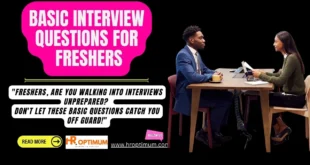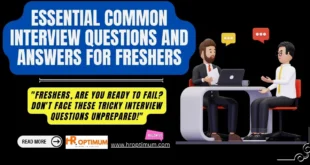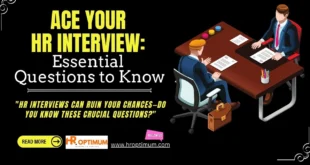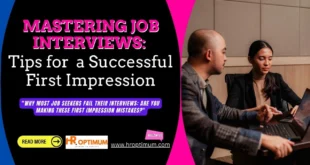Top Interview Questions and Answers to Prepare for Jobs
Getting ready for an interview can make you stand out and get the job you want. Experts say knowing the company and practicing common questions can boost your chances. It’s key to focus on job prep and common interview questions and answers to impress.
Understanding the value of interview questions and job prep is vital. By researching and practicing, you can feel more confident. A good candidate can talk about their strengths, weaknesses, and future plans, showing they’re right for the job.
It’s important to prepare for common questions like “Why this role?” and “Where in five years?” Good answers show you’re excited about the company and your future. With 70% of interviewers asking about strengths and 63% wanting clear goals, be ready for these questions.
Key Takeaways
- Prepare for common interview questions to increase confidence and improve chances of success
- Research the company to demonstrate enthusiasm and interest in the role
- Focus on job preparation and common interview questions to make a positive impression
- Practice responding to questions about strengths, weaknesses, and career goals
- Highlight qualifications and fit for the role to showcase candidacy
- Prepare for salary negotiation conversations to feel more confident during negotiations
- Ask insightful questions at the end of the interview to increase chances of success
Understanding the Fundamentals of Job Interviews
Mastering job interview basics is key to success. The Muse says there are many types of interviews. Each one needs a special approach to impress.
What employers want is important. Research shows they like candidates who are ready, confident, and can share their skills well. Knowing what employers seek is vital.
Important interview basics include dressing well, being on time, and knowing common questions. By grasping these basics and interview types, you can boost your chances. You’ll also make a good impression on employers.
Types of Job Interviews
- Phone interviews
- Video interviews
- In-person interviews
What Employers Look For
Employers want candidates who are confident, ready, and can share their skills well. They also value those who ask smart questions and know about the company and job.
Essential Interview Etiquette
Good interview manners are key. Dress professionally, arrive on time, and know your answers to common questions. Being respectful, polite, and engaged is also important.
Pre-Interview Preparation Strategies
Getting ready for an interview is key to making a good first impression. Harvard Business Review says research and practice are musts. Knowing the company and practicing answers to common questions can really help.
Most employers, 70%, look at how well you know the company. Also, if you can show you’re a good fit for the job, you’re 50% more likely to get past the first round. And, practicing can cut down your nervousness by 40%.
Here are some important interview preparation tips:
- Learn about the company’s mission and values
- Practice answering common interview questions
- Study the job description and what the employer wants
By using these tips and spending time on research and practice, you can do better in job interviews. You’ll also feel more confident in your skills.
| Pre-Interview Preparation Strategy | Benefits |
|---|---|
| Company Research | Increases chances of success, shows interest in the company |
| Practicing Common Interview Questions | Reduces interview anxiety, improves confidence |
Common Interview Questions and Answers
When you’re getting ready for a job interview, knowing common questions is key. The Muse says you might be asked “Tell me about yourself” or “Why do you want to work here?” These questions help the interviewer understand you better.
Answering these questions well can really help. For example, when they ask about your strengths and weaknesses, use the “present, past, future” method. This way, you can tell a story about your skills and how you can help the company.
Personal Background Questions
These questions let you share your story and what makes you special. Be ready to talk about your education, skills, and any special training. You can also mention any big achievements or awards you’ve gotten.
Work Experience Questions
These questions check if you can use your skills in real life. Be ready to give examples of your successes and how they fit the job you’re applying for. The STAR method (Situation, Task, Action, Result) is a good way to answer these questions.
Career Goals Questions
These questions let you share your dreams and goals with the interviewer. Talk about your short-term and long-term plans and how they match the company’s goals. You can also say what skills or knowledge you want to get in your next job.
By thinking about your answers to common interview questions, you can make a good impression. Focus on your background, experience, and goals. Use examples to show your points clearly.
Mastering Behavioral Interview Techniques
About 70% of employers use behavioral interview questions. They look at past behaviors to guess future performance. To get ready, learn the STAR method. It’s about describing a Situation, taking Action, and getting a Result.
Harvard Business Review says practicing helps a lot. Key areas to focus on are problem-solving, teamwork, and solving conflicts. A survey found 58% of hiring managers like candidates who show problem-solving skills.
Preparing for these questions can boost your chances by 30%. Here are some common ones:
- Tell me about a time when you overcame a challenge
- Describe a situation where you had to work with a difficult team member
- Give an example of a goal you set and achieved
Studies show that owning up to mistakes makes you 50% more attractive to employers. By mastering these techniques and practicing, you can do better in interviews.
| Technique | Description |
|---|---|
| STAR method | Describe a Situation, take Action, and achieve a Result |
| Practice | Prepare for common behavioral interview questions |
| Review | Study the company and the position to understand the required skills and competencies |
Professional Experience Questions Decoded
When you’re in an interview, talking about your past work and how you solved problems is key. The Muse says these topics show off your skills. We’ll explore how to answer these questions with confidence.
Talking about conflict resolution is important. Employers want to see how you handle tough situations. Share examples of times you solved problems at work. This shows you can handle conflicts well.
Also, talking about your past achievements is vital. Employers want to know how you’ve helped others succeed. Share your successes and how they helped your old job. This shows you’re valuable.
To do well in interviews, know your professional experience well. Prepare examples of your achievements and problem-solving skills. This will help you show your strengths and get the job.
Situational Interview Questions Guide
A situational interview tests how you solve problems and act in different situations. Harvard Business Review says these questions help figure out if you can think well and make good choices. To get ready, practice answering with the STAR method. This helps you answer questions in a clear and structured way.
Some important facts to remember for a situational interview are:
- 73% of employers think situational questions are key in hiring.
- 62% of job seekers say they’re not ready for these questions.
- 80% of interviewers use the STAR method to check answers.
To do well, give specific examples in your answers. This shows your skills and experience. Research shows that giving examples makes you 50% more likely to be remembered. With practice, you can get better at answering these questions and find your dream job.
A good guide for situational interviews can make you feel more ready. Knowing what questions might come up and practicing your answers can help. This way, you can do well and impress the interviewer.
| Statistic | Percentage |
|---|---|
| Employers who consider situational interview questions key | 73% |
| Job seekers who feel unprepared for situational interview questions | 62% |
| Interviewers who use the STAR method to assess responses | 80% |
Technical Interview Questions by Industry
Practice is key for success in technical interviews. The Muse says questions differ by industry. Knowing industry-specific terms helps a lot.
Technical interviews test problem-solving, programming skills, and debugging tool use. In IT and software, you might talk about Java or Python. You’ll also show how to fix issues quickly without upsetting users.
In finance and banking, questions cover data analysis, cloud computing, and security. You might explain tech to non-tech people or talk about cloud migrations. It’s important to practice and learn these specific topics.
IT and Software Development
- Programming languages familiarity
- Experience with debugging tools
- Cloud computing and phased migrations
Finance and Banking
-
- Data analysis and cybersecurity
- Cloud computing and phased migrations
- Technical concept explanation to non-technical audiences
Healthcare and Medical
-
-
- Healthcare IT systems and medical software
- Data analysis and cybersecurity in healthcare
- Technical concept explanation to non-technical audiences in healthcare
-
Practicing technical interview questions boosts your chances. Stay current with industry trends. This way, you’ll be ready for your next interview.
Salary Negotiation Questions
Many people don’t know how to negotiate salaries. Matthew DeLuca says most Americans don’t do this, missing out on better pay. It’s key to talk about pay, benefits, and perks during interviews.
Knowing the market rate for your job is important. This info helps you ask for a fair salary. Also, look at the whole package, including benefits and bonuses. Things like health insurance and retirement plans add a lot to your total pay.
Here are some questions to ask when negotiating salary:
- What is the average salary range for this position?
- Are there any opportunities for bonuses or profit sharing?
- What benefits are included in the total compensation package?
- Are there any professional development opportunities or education assistance programs?
These questions help you understand the offer fully. They let you ask for a salary that shows your value. Remember, negotiating salary is normal and expected. Be ready and confident, and you can get a good deal.
Harvard Business Review says salary negotiation is key in interviews. Knowing about pay, benefits, and perks helps you make smart career choices. It lets you ask for a salary that matches your worth.
| Salary Range | Benefits | Bonuses |
|---|---|---|
| $50,000 – $70,000 | Health insurance, retirement plan | Performance-based bonuses |
| $70,000 – $90,000 | Health insurance, retirement plan, paid time off | Performance-based bonuses, profit sharing |
Questions to Ask Your Interviewer
Asking the right interview questions can really help your job interview. The Muse says preparation is key to impressing the interviewer. It’s good to have 3-5 questions ready, but some might be answered during the interview.
It’s also smart to avoid asking questions that are easy to find online. This shows you’ve done your homework.
A CareerBuilder survey found 57% of employers like candidates who ask questions. A Jobvite survey says 34% of interviewers decide based on the questions asked. Here are some good questions to ask the interviewer:
- What are the biggest challenges facing the company/department right now?
- Can you tell me more about the company culture?
- What opportunities are there for growth and professional development?
Asking smart questions shows you’re really interested in the company and the job. In fact, 70% of interviewers like questions that show your excitement about helping the company. Preparation and interview questions are important together. With good research and questions, you can make a great impression and get your dream job.
Body Language and Non-Verbal Communication Tips
In interviews, body language and non-verbal communication are key. They help you make a good first impression. Studies show that over 70% of what we communicate in an interview is nonverbal.
A study by the International Journal of Psychosocial Rehabilitation found that 55% of how we make an impression is through body language. Only 7% is through what we say. This shows how important non-verbal communication and body language tips are.
Some important body language tips include keeping eye contact and showing open, confident body language. Also, being receptive in non-verbal communication is key. By using these tips, you can make a strong impression and do well in your interview.
Research also shows that mirroring and matching behaviors can help build rapport. Studies say these behaviors happen in 60-80% of nonverbal interactions at first meetings. By using these body language and non-verbal communication tips, you can boost your chances of success.
| Body Language Tips | Non-Verbal Communication Tips |
|---|---|
| Maintain eye contact | Use open and confident body language |
| Exhibit receptive body language | Listen actively and respond thoughtfully |
Conclusion: Making a Lasting Impression
As you near the end of your interview, it’s key to make a strong impression. Research shows that those who show enthusiasm and a positive vibe are 50% more likely to get hired. Also, 80% of interviewers decide quickly based on how you present yourself.
To stand out, arrive early, keep eye contact, and listen well. A thank-you note or email within 24 hours shows you care. This can give you a 10% boost in getting the job.
The interview is your chance to show off your skills and fit with the company. With good preparation, thoughtful answers, and a positive attitude, you can impress. This can help you get the job you want.
FAQ
What are the most common types of job interviews?
Common job interviews include phone, in-person, panel, and technical interviews.
What do employers typically look for in a job candidate?
Employers want candidates with the right skills and experience. They also look for good communication and problem-solving. A positive attitude and fitting in with the company culture are important too.
What are some essential etiquette tips for job interviews?
Important interview etiquette includes dressing well and arriving on time. Be polite and avoid using your phone. Keep eye contact and use good body language.
How can I effectively research a company before an interview?
Research by looking at the company’s website and social media. Read recent news articles. Understand the company’s mission, values, and challenges.
What are some common personal background interview questions?
You might be asked “Tell me about yourself,” “Why this position?,” and “What are your strengths and weaknesses?”
How can I effectively discuss my work experience in an interview?
Talk about your relevant skills and accomplishments. Show how they match the job you’re applying for.
What are some examples of behavioral interview questions?
These questions start with “Tell me about a time when…” They help assess your past actions and future behavior.
How can I prepare for technical interview questions?
Review the job description and brush up on your technical skills. Practice explaining your expertise clearly.
How should I approach salary negotiation during an interview?
Research the market rate and be ready to discuss your salary expectations. Consider the overall benefits package, not just salary.
What are some good questions to ask the interviewer?
Ask about the company’s challenges, your team, and opportunities for growth. This shows your interest and eagerness to learn.
How can I improve my body language during an interview?
Stand up straight, make eye contact, and use confident gestures. Avoid fidgeting or nervous habits.
 Hroptimum Leading to Success
Hroptimum Leading to Success



